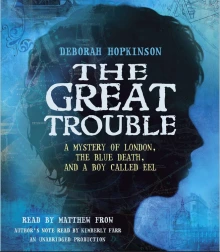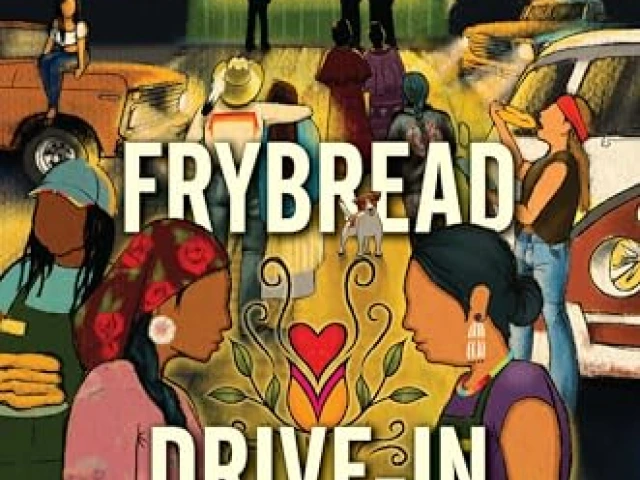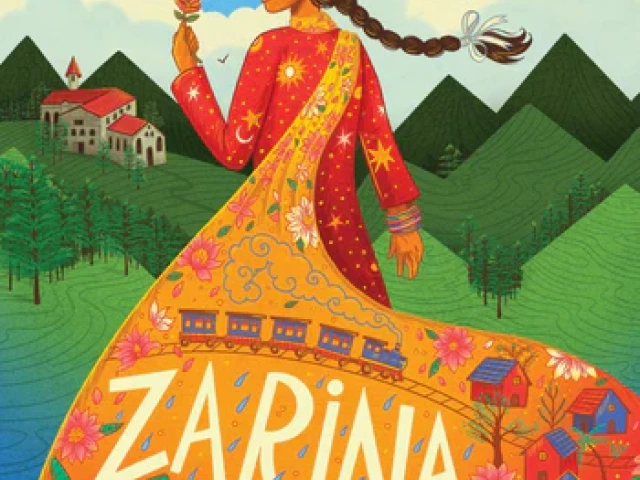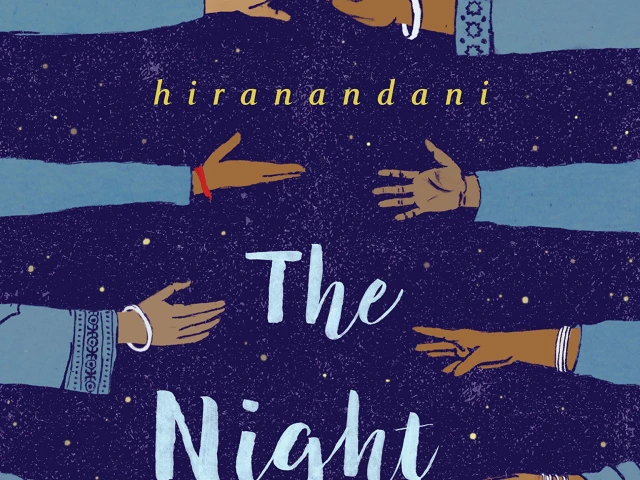Responsible Citizens and Workers: Nurturing Ethical Viewpoints in Seventh Grade

"Instead of looking with my eyes, I decided to see with my heart." (Eel, mudlark in The Great Trouble by Deborah Hopkinson, 2013)
Eel, an adolescent protagonist, along with larger than life teens like Iqbal Masih and Malala Yousafsai from Pakistan, became central figures in a four week exploration of Responsible Citizens and Workers. Overarching questions like “What makes a responsible citizen?” and “What makes a responsible worker?” initiated a collaborative inquiry between Karen’s 45 seventh graders and 12 secondary education minors enrolled in my literacy course. Previous interactions with Deborah Hopkinson led us to contemplate various social justice themes in her books. We set out to create opportunities for middle school readers to explore their place in the world and consider avenues for making meaningful contributions. Eel’s ethical outlook of “see with my heart” invited adolescents and preservice teachers to examine civic responsibility in their present day lives.
This month’s four blogs invite you to listen in on our discoveries. Karen and I initiated this exploration to examine civic responsibility partially in response to the homogeneity of our western Pennsylvania students. Additionally, Karen and I recognized the usefulness of using book pairs like The Great Trouble (historical fiction) with Stolen Dreams: Portraits of Working Children or Outbreak: Plagues that Changed History (both informational), focused on examining past and present child labor and health struggles. Recent outbreaks of Ebola in West Africa and cholera in Haiti became the backdrop for connecting seventh graders and preservice teachers with Eel, caught in the 1854 London cholera outbreak. Fictional characters from the 19th century (Eel) and teens facing monumental struggles today (Iqbal and Malala) became our model citizens and workers.
Skyping with Hopkinson While planning our study over the summer, we arranged a Skype conversation with Deborah Hopkinson, an alternative to costly face-to-face visits. Our after-school 30-minute Skype session during the fourth week of school allowed Karen’s and my students to start exploring The Great Trouble before our grand conversation with Deborah. To help preservice teachers consider literacy as a social practice, we studied Cris Tovani’s (2000) notion of fake reading and Jerry’s Harste’s (2003) insights on critical literacy.
Cory, a history preservice teacher, noted the role of questioning during his conversation with three seventh grade boys following our Skype session. Josh wondered aloud about the second cholera victim’s spouse. “I hope Mrs. Griggs will be okay... but it must be really hard to lose your husband like that! Does she even work? How will they eat?” This 13-year-old reader helped Cory gain an understanding of the need to invite readers to pose their own questions. Karen’s previous efforts to invite readers to generate questions while reading evolved into further queries.
Kat, an English preservice teacher, interacted with two seventh graders and elicited the following responses through a discussion of their favorite character. Cameron explained, “I related to Eel because he is hardworking and honest.” Adam asserted, “I liked Eel because he cares about other people.” Later Kat discussed the clarity she heard in their answers, not simply because they aptly outlined citizenship or workers or described Eel so thoughtfully but “because Cameron and Adam talked about themselves in positive ways through Eel’s character. Reading is amazing since it makes students examine themselves in unexpected ways.” During an egocentric phase of life, these teens examine civic responsibility and openly discussed Eel’s strengths, evident in descriptors like hard-working, honest and caring. The potential in grand conversations with an author and classmates to help teenagers ponder their place in our world began to emerge.
The Ethics of Caring in Seventh Grade Boys Nel Noddings’ work on the need to include ethical caring in our curriculum helped Karen and me see the larger purpose for discussions evoked through The Great Trouble.
“All humans can be helped to lead lives of deep concern for others, for the natural world and its creatures, and for the preservation of the human-made world, to make positive contributions, regardless of the occupation they may choose.” (1992)
Responsible citizens can be nurtured in middle school. Josh, Cameron and Adam, typical European-American middle class boys living in rural western Pennsylvania, espoused common adolescent interests including hunting, sports and video-games. As the mother of a teenage boy equally obsessed with basketball and X-box, I create occasions to outgrow self-absorbed tendencies. My parental and teacher educator lens led me to marvel at three boys’ willingness to examine civic responsibility and to consider the altruistic nature of Eel, a boy set on using his heart and mind to help others in need.
Discussions about Eel, a protagonist facing an epidemic long ago, invited adolescents to reflect on their own life circumstances in productive ways and examine civic responsibility. This emerging definition of responsible citizens -- those offering hard work stemming from an honest and caring heart -- seem an apt beginning for our ensuing investigations.
Our second and third blogs take us into Karen’s seventh grade classroom for a close-up look of students’ use of historical and informational book pairs. We close our month by sharing a list of book trios focused on Responsible Citizens and Workers.
References
Harste, J.C. (2003). What do we mean by literacy now? Voices from the Middle. 10(3), 8 -12.
Noddings, N. (1992). Social studies and feminism. Theory and Research in Social Education. 10(3), 230-241.
Tovani, C. (2000). I read it, but I don’t get it: Comprehension strategies for adolescent readers. Stenhouse.
Journey through Worlds of Words during our open reading hours: Monday through Friday 9 a.m. to 5 p.m., Saturday 9 a.m. to 1 p.m. Check out our two online journals, WOW Review and WOW Stories, and keep up with WOW’s news and events.




As a professor of a social studies methods course for PreK-4 pre-service teachers, I applaud the efforts to recognize the importance of responsibility in citizenship education. The time to begin elements of responsibility should start in kindergarten. I wonder what the effects would be if responsibility and citizenship were really taught with purpose? Too often social studies is overlooked because there are not high stakes tests associated with the discipline. Are we seeing the sad effects in a growing population of people who are not responsible citizens?
Working with these children was truly incredible. I loved to watched how they tackled difficult concepts such as self-identity by using literature.